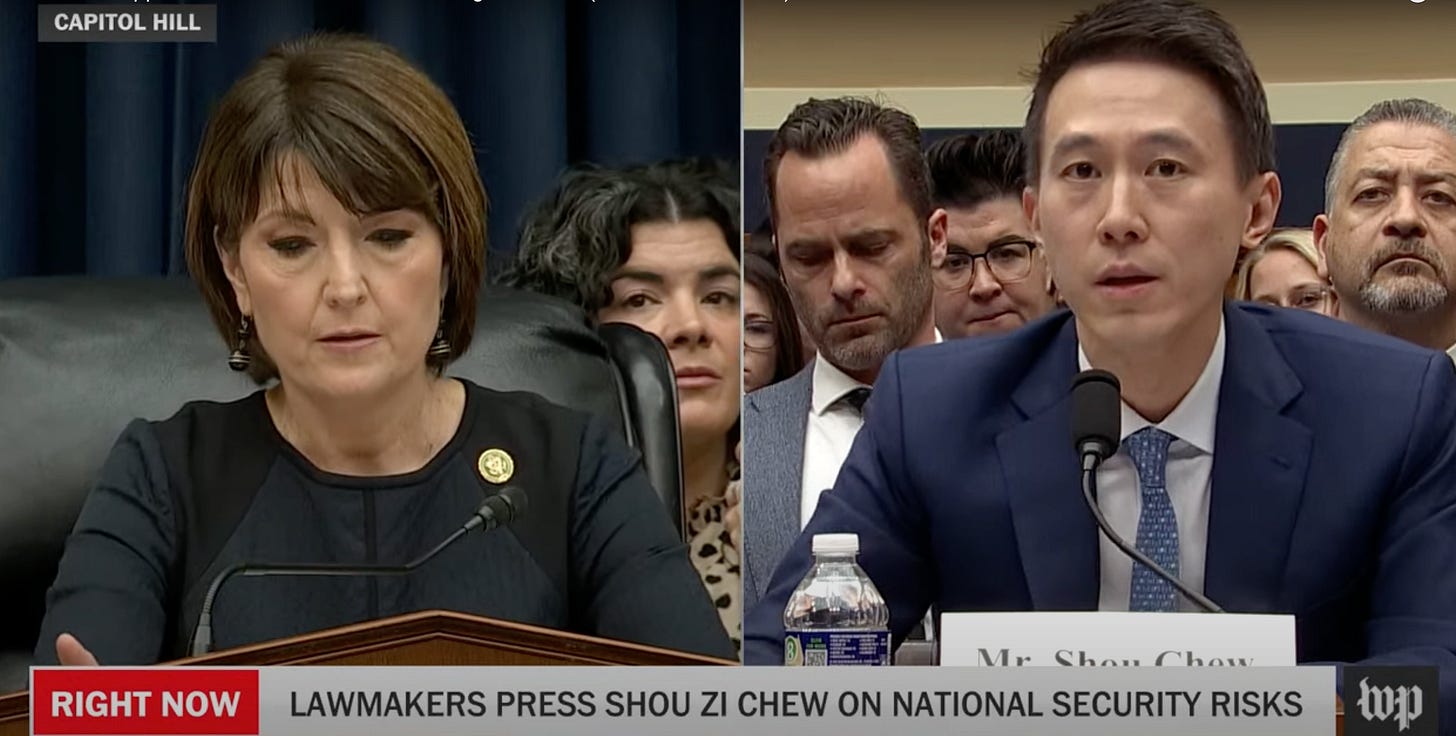TikTok’s CEO Isn’t The Boss
In a hearing, TikTok CEO Shou Chew came off like an underling. Now we’ll see if anything comes of it.
TikTok CEO Shou Chew had one mission as he appeared before Congress on Thursday: Convince U.S. lawmakers that TikTok had some separation from its China-based parent company, Bytedance.
He was there because worries over China’s ability to access TikTok user data, or influence its content filtering, had U.S. lawmakers, regulators, and the White House cons…


